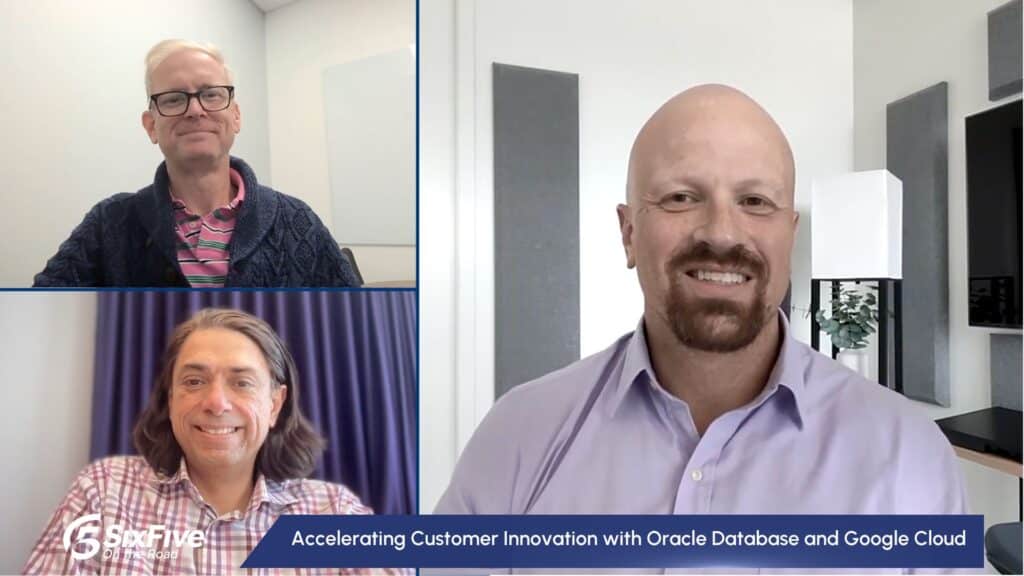Outdated Technologies, Regulatory Requirements, and Lack of Skilled Labor Are Top Challenges, According to IFS
The News: IFS, a cloud enterprise software company, released results from its global State of Service research study of communications service providers (CSPs). The data indicates that the top three service management pressures telecommunications providers face are: increased regulatory requirements, outdated or insufficient service technologies, and skilled labor shortages and high turnover. According to the data, better customer services was listed as a top benefit of implementing advanced field service management (FSM) technologies with 67% of respondents noting this. Forty-seven percent also said that FSM technologies helped to attract new, skilled workers. See the full release from IFS here.
Research Shows Field Service Management Technologies Positively Impact CX, EX
Analyst Take: Research recently released from cloud enterprise company IFS shows that telcos face challenges with outdated, legacy service technologies, heightened regulatory requirements, lack of skilled workers, and employee turnover. Leveraging advanced technologies for field service workers helps heal these pain points, and the research shows that many of the technologies telcos plan on implementing this year for service management could have implications for both CX and EX.
The challenges telcos face mirror many of the same issues happening across all business types, but with the added complication of regulation. Similar to other industries, telcos are looking to automate, optimize, and support frontline and other workers, all while trying to increase revenue and provide a better customer experience.
The positive is that the research shows telcos are wisely planning their technology investments, with many aimed directly at improvement both employee experience and customer experience.
Top 10 Service Management Solutions Telcos Will Adopt in 2023:
- Scheduling automation & optimization: 53%
- AI and machine learning: 49%
- Simulations: 47%
- Wearables: 38%
- Parts management: 38%
- Augmented/virtual/merged reality: 38%
- Chatbots: 36%
- Customer self-service: 36%
- Knowledge management: 35%
- Warranty management: 35%
Source: IFS
Key Takeaways
- The automation of scheduling is a friction point across all frontline industries, particularly complicated by workers increasingly wanting flexibility and the ability to easily change shifts or days. It is something that can not only help with retention, but with recruitment. Using technologies to optimize scheduling and workforce planning should be part of any company’s strategy to both solve inefficiencies and support employees.
- A little surprising chatbots and self-service were not a bit higher up, but good to see intent to adopt. Both are already being widely used both internally and externally as part of CX and EX strategy.
- Parts management. Maybe not the most exciting, but one of those behind-the-scenes supports that contribute to a higher first-time fix rate and a better customer experience.
- Interesting to see telcos looking at technologies such as AR/VR/MR. According to recent research from Amdocs, consumers are eager for more advanced augmented reality (AR) and mixed reality (MR) experiences to be integrated within gaming, shopping, exercise, and other areas and applications for customer service from both the customer and the field service angle are promising. The use of other channels such as video in customer support has been a tool for customer support for years and has been evolving to provide more personalization and other benefits.
- The fast pace of technology change, an aging workforce, lack of skilled workers and employee turnover are creating a headache for telcos looking to hire and keep workers. The use of some of the proposed technology investments, particularly AI and ML, simulations, knowledge management, and AR/VR/MR can be leveraged as tools to support much needed training and reskilling.
Disclosure: The Futurum Group is a research and advisory firm that engages or has engaged in research, analysis, and advisory services with many technology companies, including those mentioned in this article. The author does not hold any equity positions with any company mentioned in this article.
Analysis and opinions expressed herein are specific to the analyst individually and data and other information that might have been provided for validation, not those of The Futurum Group as a whole.
Other insights from The Futurum Group:
Verint Launches Enterprise Experience Management
Genesys Launches the Experience Index for Contact Center Employees
The Potential Impact of Outcome-based Investment on Customer Experience
Author Information
As a detail-oriented researcher, Sherril is expert at discovering, gathering and compiling industry and market data to create clear, actionable market and competitive intelligence. With deep experience in market analysis and segmentation she is a consummate collaborator with strong communication skills adept at supporting and forming relationships with cross-functional teams in all levels of organizations.
Sherril holds a Master of Business Administration in Marketing from University of Colorado, Boulder and a Bachelor of Arts in Psychology from Rutgers University.







